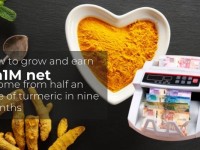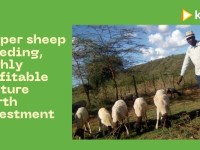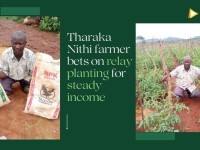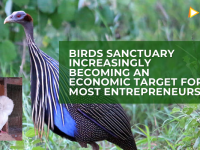Since the beginning of this year, cooking oil has become a luxury for many broke and struggling Kenyans as the price of the commodity continues to go up as a result of a rally in edible oil cost globally.
Customers now opt for salad oil that comes in barrels and is sub-divided into smaller quantities in many shops. The customers carry their containers for the quarter, half, a full litre of cooking oil they wish to buy.
But even this is no longer affordable for many given most shops at the moment sell a litre of the salad oil at Sh200 averagely from Sh150 it used to be.
Most hit with the prices are those who run businesses that need much of this oil such as potato chips, fish frying, mandazi, bajia and samosa among others.
However, creating a fortune out of this hike and helping some of these businesses continue running at lower cost by giving an equal alternative is Michael Oketch, a pork lard seller along the busy Jogoo Road.
“I started by opening a pork butchery early last year and selling meat to customers but with time, I began receiving inquiries for pork oil from some buyers something which triggered my thoughts into how this could also be some source of income,” said Michael.
From there, he could go to his usual abattoir in the outskirts of Nairobi and after buying his usual pork meat, he would ask for oily parts which to his surprise were sold at very lower prices compared to the ordinary parts.
“I found that a kilo of the fatty parts was sold at Sh50 while a kilo of normal pork meat cost Sh300. So, for the first time I bought 10 kilos of the fatty parts at Sh500 which gave me about seven litres of oil selling at Sh130 per litre to earn Sh910,” said Michael.
From there he has never looked back. Today, he buys up to about 30kgs a day of the fatty parts which gives him around 26 litres of pork lard after extraction which he does by heating the parts.
In a day, he can sell up to 20 litres of the oil to wholesale buyers raking him Sh2,600 while if he sells to retailers he makes Sh3,000 selling at Sh150 a litre.
His main buyers are fish frying business people along Jogoo Road, in Burma Market while some in Gekomba Market. Others include samosa and bajia frying businesses along the busy Eastlands road.
“I did not know that this business will peak this fast because as it is, it is now outdoing pork meat selling and I believe that as long as cooking oil prices will continue to stay up, more customers will come,” said Michael.
He says many customers are now not only buying pork lard because of the high prices of cooking oil but also due to its nutritious value.
Experts assert that oil is one of the best sources of vitamin D, a nutrient most people are deficient in today.
Research conducted in 2011 by Weston A. Price Foundation, a global nutrition and health platform found that lard from pasture-raised pigs contains 1100 IU of vitamin D per tablespoon.
Lard is a good source of fats that support a healthy heart. In fact, after olive oil, which consists of 77 per cent monounsaturated fatty acids, lard has the most monounsaturated fats at 48 per cent.
These fats help to lower blood cholesterol levels and maintain healthy cells.
Also, unlike most vegetable oils, which shouldn’t be used for high-heat cooking, lard won’t oxidize at high temperatures hence it has a high smoke point.
Lard contains choline whose low levels is connected with everything from a greater risk of heart disease and Alzheimer’s to problems with the liver.
And finally, food cooked using lard have an amazing taste hence generally enhancing the flavour of roasted vegetables, grilled meats, and even baked goods.





















